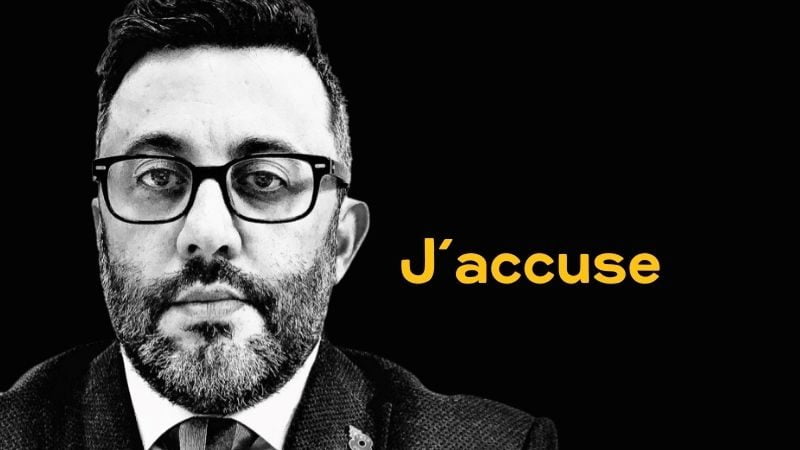I was almost tempted to waste another article dissecting Robert Abela’s Sunday Sermon. This was the one where he gave us a hint of his humanity by informing us that granny caught COVID (GWS and all that). That was in between his pumping of the ‘Team Malta’ dream and giving the spin about “backhanded campaigns to paralyse our economy,” another twist.
I am sorry but there is only so much of Abela’s ‘Dream Big’ that I can take and, worse still, I doubt what service any counter arguments I make will do to the community.
The news this week was once again dominated by yet another story of politicians on the payroll of corrupt businessmen and murderers. Sadly, the tip of the iceberg that we see is nothing compared to all the machinery of wheeling and dealing that goes on daily. Public assets in the form of land or money are lost daily to the evil partnership of politics and shady business. All this happens in Robert Abela’s dreamland with or without those ‘campaigns to paralyse the economy’.
The problem lies in the whole discourse on partiality that regularly stokes the fires of discussion on our island before being brushed aside with an air of beaten resignation. As a nation, we are tuned to thinking in terms of a universal dichotomy – a Maltese version of yin and yang – coloured in blue and red. Tiring and nauseating as it is, the bipartisan dilemma pervades all spheres of public life to the point of exhaustion.
In the recent case being made against the political party media we have witnessed a focus on the laws of impartiality that are supposed to be safeguarded by the custodian of broadcasting made up of equal numbers of PL and PN personnel. What we seem to be underestimating is our measure of partiality and balance. Partiality to what exactly? That is a crucial question that very few people seem to be asking.
When we complain that it is not enough that the PN and PL media ‘balance each other out’ with their obnoxious propaganda we ignore the fact that our measure of partiality remains limited strictly to their two divergent narratives. We do not seem to be seeking a universal sense of balance (the much-satirised BBC policy comes to mind) and instead, we are content with a measure that boils down to an equal dose of the two extremes.
The current fictitious balancing exercise means that each Party´s station can blast 100% propaganda. This is based firstly on the (wrong) assumption that this has the net result of balance via mutual assured neutralisation. What is worse though is that the concept of balance is defined using the Party’s as the underlying measure.
Impartiality should not be defined with the PLPN litmus test. If impartiality must be part of our laws as the citizen’s right to access balanced information, it should not depend on the whims and fancies of the two callouses currently hoarding our Constitution.
What we have now is Partial Law. We may not be Myanmar with a General´s Coup leading to Martial Law and suddenly shutting down all forms of communication. We are not the US either, though this week´s impeachment vote showed another weakness of dualistic parliamentary democracies when GOP senators voted with survival, rather than justice and example, in mind.
We have a constitutional democracy that runs under Partial Law where a partitocracy of two writes the rules to best serve itself. The Impartiality Lawsuit may be well-intentioned but fails to see the wood for the trees. ‘At least we are doing something’ does not cut it either. It is not enough because it still accepts the measure that was flawed in the first place.
Partial Law is not limited to broadcasting. It is the tool with which the political party system spreads its tentacles with the connivance of the business wheels of the nation to reach out into every sector of our economy. Already the business of government is heavily infiltrated by political party control. Public procurement, permits, licensing, development – all depend on the heavy machinations that are enabled by our partial laws.
Partial Law blesses the appointment of a PL youth to the board of governors of FinanceMalta. It thrives off the coffers of the public purse while such principles as meritocracy and accountability are thrown out of the window. The rot is far set in and a tweak of our broadcasting laws will barely contribute to solving the problem.
Our quest should not be for impartiality. At least not yet. “Impartiality is a dream; honesty is a duty.” (Gaetano Salvemini)













‘ Impartiality should not be defined with the PLPN litmus ‘
This was the biggest flaw that the then BA board made some years ago . They argued that once there two political owning the stations , this is enough balancing fir the general public, the GAHAN yelling in the village squares .
True. The contemporary species of leering, dead-eyed politicians recoil in fear, horror and disgust at the mere thought of virtue.
Honesty is the breeze that brings down the house of cards.
Didn’t I hear somewhere that it is also the best policy?
A wise man told us some years ago that it is you who have to pay for corruption, and he was damn right.